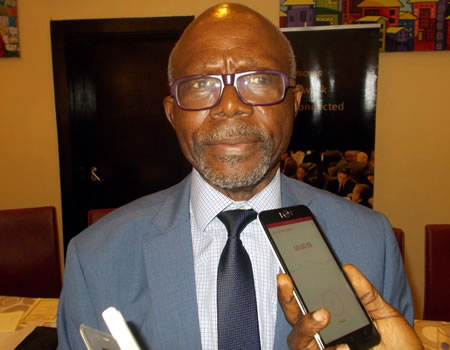However, a former Managing Director of Nigerian LNG and Group Executive Director (GED), Nigerian National Petroleum Corporation (NNPC) and the President of Petroleum Club, Mr. Godwin Ihetu, has argued that the PIB is not jinxed but rather it suffers lack of political will from politicians.
Speaking in an interview with the Nigerian Tribune, he stated that “One of the challenges of passing the bill is that it was so voluminous until the present 8th Assembly divided it into four bills. They hired consultants to go through those bills. Only one of the bills has been passed. It was discovered that as at 4th June, it hasn’t gone to President Muhammadu Buhari due to what the Senate president termed as legal issues. Until those are resolved before it would be sent to President Buhari.
ALSO READ: I’m alone in government, my appointees have abandoned me ―Ortom
“What has been hindering the passage of PIB is bureaucracy and not jinxed. This time, the national assembly took the right decision by breaking it into segments. Recently, there was a public hearing on petroleum industry fiscal bill, petroleum industry administration bill, Petroleum Host and Impacted Bill.”
When asked on what is the impact on the economy of delay in its passage, he stated that the impact is that government is losing revenue.
“Because we are still using the petroleum law they have been trying to adjust since year 2000. The whole idea of reviewing the petroleum law is to make sure that the oil sector is competitive particularly the upstream side which is very capital intensive. Anybody bringing in investment wants to know what the law says and what the fiscal regime is. They don’t want the terms to be changed after they must have committed their investment in the economy. People have held back their investment and some have taken it to other countries. These are huge losses to the economy.
“In terms of figures, I can’t be specific but rather go with the minister of state for petroleum resources, Dr.IbeKachikwu,” he stated.
On regulatory issue, he suggested that there should be one regulator for the entire oil and gas sector. So that you don’t have issues of conflicts among the regulators.
“From the inception of Petroleum industry in Nigeria, we have always have one regulator. It was when Nigerian National Oil Corporation (NNOC) merged with the Ministry of Petroleum to become Nigerian National Petroleum Corporation (NNPC) that we now made the regulator, Petroleum Inspectorate, to be part of NNPC, thereby NNPC assuming the roles of Petroleum Inspectorate. But after due reforms, we now have Petroleum Inspectorate as the regulator while the NNPC is the commercial arm of the Ministry.
“I have heard that PPPRA is kicking against a single regulator for the oil and gas sector, but note that PPPRA is an intervention agency because the downstream sector is not deregulated. If the industry was deregulated, I don’t see any role for PPPRA. What they regulate is the petroleum pricing like the landing cost and approved retail price for petrol and kerosene. If you deregulate, then they have no roles.
“For years now, the policy has been to strengthen the DPR which was weaken because they were part of the NNPC before. The thrust is to strengthen the regulator,” he said.
On the way forward, he stated that “We are all looking forward to the bill being passed and signed into an Act as quickly as possible. We have taken so much time on this. We expect that when the president signs it, we will begin to see changes in the oil sector like reforms of the NNPC, like giving much power to the regulator and quite a number of things contained in the PIB. The bill is looking at institutions in the public sector and the regulator also.”





